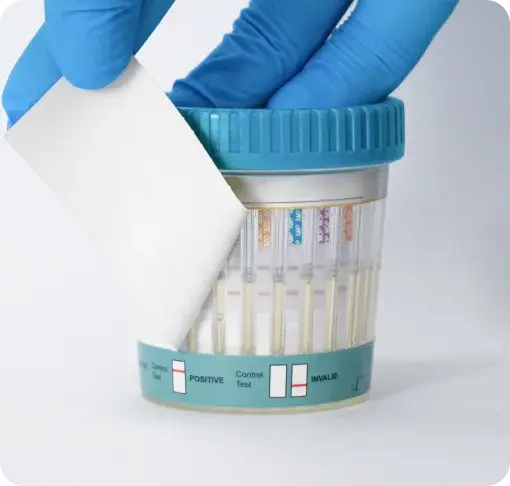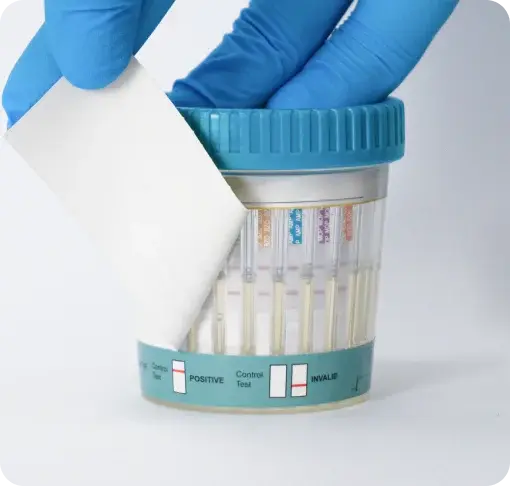AttoSure Explores the Ins and Outs of Poppy Seed Drug Testing
As you may know, most Opiates are derived from the Opium Poppy plant (Papaver somniferum). The natural substances extracted directly from the poppy plant include Morphine, Codeine, and Thebaine, which are the primary alkaloids used to create various Opioid medications.
Both Morphine and Codeine are effective pain relievers but also have a high potential for addiction and abuse due to their psychoactive effects, which can produce feelings of euphoria when taken in larger doses than those prescribed.
Understandably, many workplaces and healthcare facilities test for Opiates as they may affect work performance or lead to overdose if combined with other Opiates such as Methadone (which is used in Opioid replacement therapy).
But, if you’re someone who eats a lot of poppy seeds, could your test results show as positive for opiates? The answer is: Yes.
Poppy Seeds: A Culinary Staple with a Complex Background
The Opium Poppy plant (Papaver somniferum) is different from the red poppies (Papaver rhoeas) often seen in war fields, known as "remembrance poppies." Both belong to the Papaver genus, meaning they are related, but they serve different purposes and have distinct characteristics.
The Opium Poppy can also produce seeds that are free from narcotic chemicals and are used in cooking and baking. These seeds are commonly referred to as poppy seeds and are used as ingredients in various dishes and baked goods, like bread, cakes, and pastries, for their nutty flavour and decorative purposes.

Poppy Seed Bagels
One of the most popular items in many bakeries, these bagels are known for their distinctive poppy seed coating on top, which adds a crunchy texture and a unique flavour.
Lemon Poppy Seed Muffins
A classic in many cafes and bakeries, these muffins combine the zesty flavour of lemon with the subtle, nutty taste of poppy seeds, making them a favourite for breakfast or snacks.
Poppy Seed Dressing
Often used in salads, this dressing combines poppy seeds with ingredients like vinegar, sugar, and oil, creating a sweet and tangy flavour that complements various types of salads.
Poppy Seed Cake or Strudel
In many Eastern European cuisines, poppy seeds are used extensively in desserts. Cakes and strudels with poppy seeds are common, with the seeds providing a rich, earthy flavour.
Poppy Seed Rolls or Buns
These are sweet or savoury baked goods where poppy seeds are either mixed into the dough or sprinkled on top. They are popular in European and Middle Eastern cuisines and can be found in many international bakeries.
Poppy Seeds in Drug Testing
Poppy seeds originate from the Opium Poppy plant, the same source used for producing opiates like Morphine and Codeine. The process of manufacturing Opiates involves extracting alkaloids from the Opium Poppy. These alkaloids, including Morphine and Codeine, are then refined into various forms of medications and illicit substances.
When poppy seeds are not thoroughly washed or processed, they can retain trace amounts of these Opiate alkaloids. As a result, consuming foods with poppy seeds might lead to a positive, or non-negative, result in the preliminary screening stages of a drug test.
Labs, such as AttoSure, employ a two-stage testing procedure. Stage one is usually a screening test, either lab-based or point-of-care, (E.g. Urine test, Oral fluid test), both of which test for Opiates. Stage two is secondary lab confirmation testing. While initial tests may show non-negative results due to poppy seed consumption, confirmatory testing is designed to differentiate between poppy seed consumption and opiate use by testing for Thebaine. If a subject tests as “non-negative” in Stage one, their sample will be sent for more comprehensive testing.
It’s possible that ingestion of poppy seeds might show as a non-negative in stage one. However, subjects can rest assured that poppy seed ingestion can be identified at the second stage when Thebaine is tested for.
Conclusion
Poppy seeds can temporarily complicate drug testing due to their Opiate content. If you've consumed poppy seed-containing foods and are due for a drug test, it's wise to inform the sample collector during your test. This upfront approach allows for a better understanding and interpretation of your test results.
Explore Drug Tests

